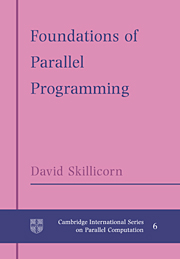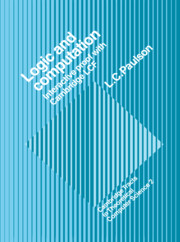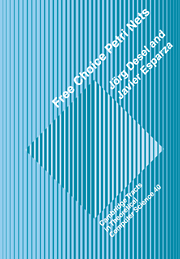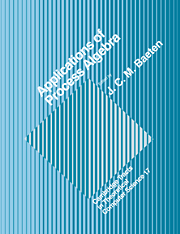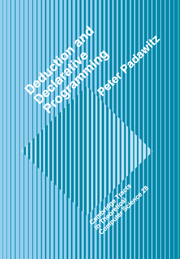Foundations of Parallel Programming
Using parallel machines is difficult because of their inherent complexity and because their architecture changes frequently. This book presents an integrated approach to developing software for parallel machines that addresses software issues and performance issues together. The author describes a methodology for software construction that is architecture-independent and intellectually abstract. The software can execute efficiently on a range of existing and potential hardware configurations. The approach is based on the construction of categorical data types, a generalization of abstract data types, and of objects. This work will be an outstanding reference for researchers in computing.
- First comprehensive account of this new approach to the fundamentals of parallel programming
- The software can execute efficiently on a range of existing and potential hardware configurations
Product details
April 2011Adobe eBook Reader
9780511884870
0 pages
0kg
60 b/w illus.
This ISBN is for an eBook version which is distributed on our behalf by a third party.
Table of Contents
- 1. The key idea
- 2. Parallel software development
- 3. Architectural background
- 4. Models and their properties
- 5. The categorical data type of lists
- 6. Software development using lists
- 7. Other operations on lists
- 8. A cost calculus for lists
- 9. Building categorical data types
- 10. Lists, bags and finite sets
- 11. Trees
- 12. Arrays
- 13. Graphs
- 14. Conclusions
- Appendix A. C++ Library for lists
- Appendix B. Historical background.

